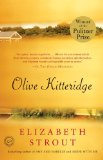Book Review: "The Three Theban Plays" by Sophocles (trans. Robert Fagles)
May 29, 2008
I’ll admit it: I have a huge crush on Robert Fagles, studly classic translator. I celebrate the man’s entire catalog. Sadly, he died this year of prostrate cancer. A travesty!
–

The Three Theban Plays (Penguin Classics)
Warning: I do mention things in this musing that could be construed as spoilers to the action in the plays.
Unlike Aeschylus, whose plays I battled through out of a sense of obligation and gravitas, Sophocles’ Oedipal cycle snared me. Perhaps it is Robert Fagles’ talented translation, perhaps I am simply reading with more care, but the complexity of the characters shone through, even 2500 years later.
It’s not Oedipus I’m talking about here. For Oedipus, things happen to him and around him, but he himself is not much more than a vessel of fate. In the final play, “Oedipus at Colonus”, he even argues (fiercely!) that he is innocent of his ghastly acts, instead a hopeless pawn of the gods’ prophesies.
It’s the women, and most strongly, Antigone. Her depth highlights the conflicting sense of womanhood held by the ancient Greeks. In Greek literature we usually see women in one of two ways. One: the simpering, overwrought mental weaklings (I tend to think of these as the Penelopes or the Aphrodites). These waifs are usually simultaneously revered for their constancy and tenderness, reviled for their uselessness. But then there’s the other side of femininity. The Athena-like assertiveness, the uncompromising, the virginal.
This is Antigone (and, to a lesser extent, her sister Ismene). She is persuasive and adventurous. She risks her life for the honor of family. She is so upstanding that Oedipus can’t quite compute–on multiple occasions he exhorts that his daughters are being so strong it’s they who are the men, not his sons. It’s not surprising that the Greeks would tend to ascribe positive characteristics as masculinity, but it interesting to me how far Antigone gets to go. However, I would argue that in this sense she had to die. Die, that is, before her marriage to Haemon, which would have taken her out of the virginal limelight and forced her into the sphere of domestic womanhood. I’d assert that this would have destroyed the integrity of her character.
Antigone’s strength is but one aspect of probably a billion subthemes in these plays. It will take me a long time to sort it all out in my mind. A moment of bragging: I almost instantly recognized Oedipus’ character at the beginning of “Colonus”: totally King Lear! Turns out I was right; Shakespeare borrowed heavily.
Recently Reviewed
Get the Books
Read my Reviews
Related Posts
- The Iliad (Penguin Classics Deluxe Edition) by Homer
March 24, 2008 - 2008 Reflections: March: When all Else Fails, Go Limp
December 26, 2008 - Reader Question: Where to start with Plato?
January 16, 2010 - Book Review: “Histories” by Herodotus (Landmark)
January 3, 2010 - Book Review: Henry IV, Part I by William Shakespeare
January 23, 2010





